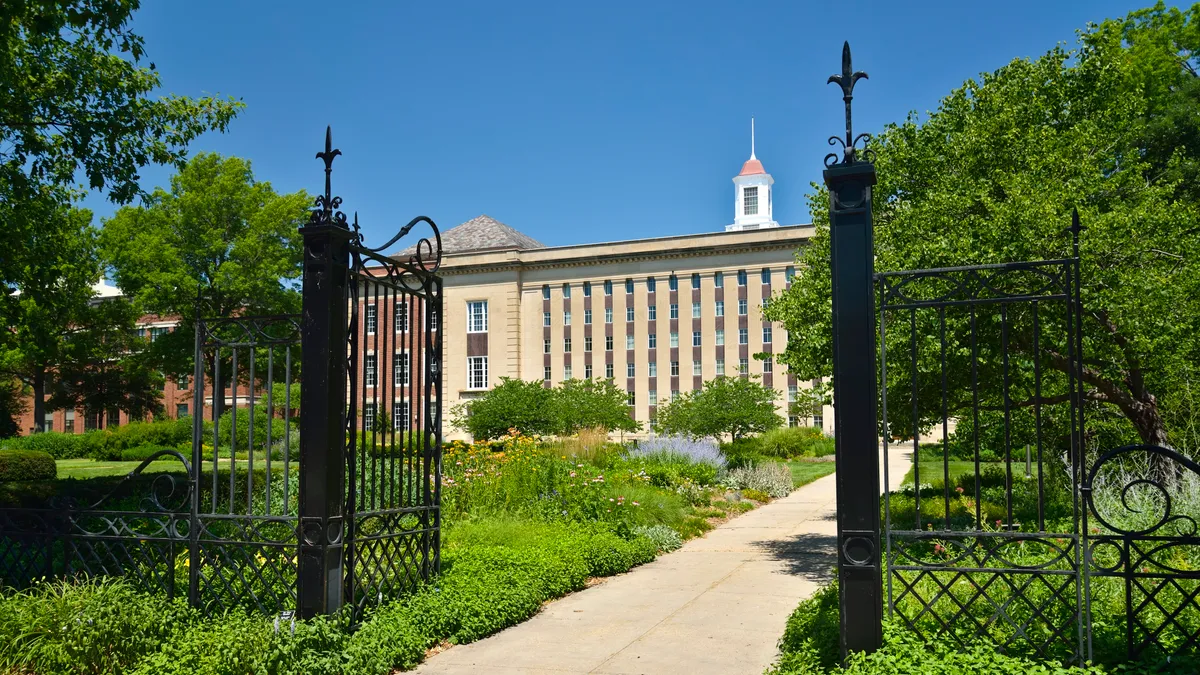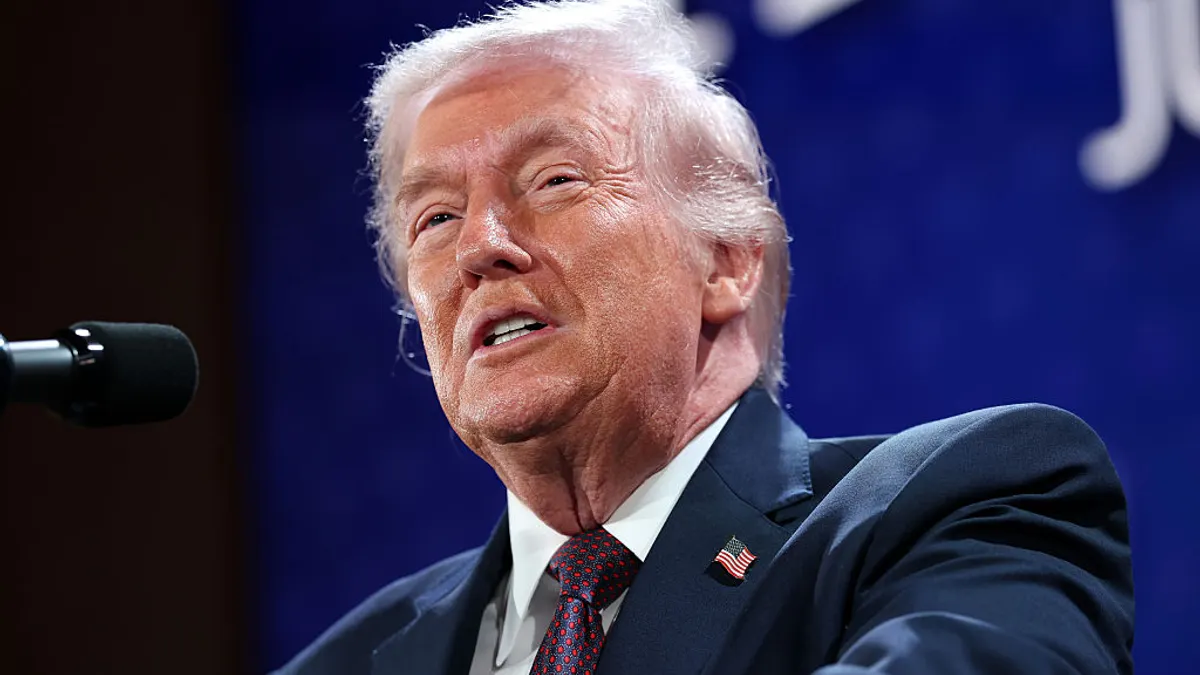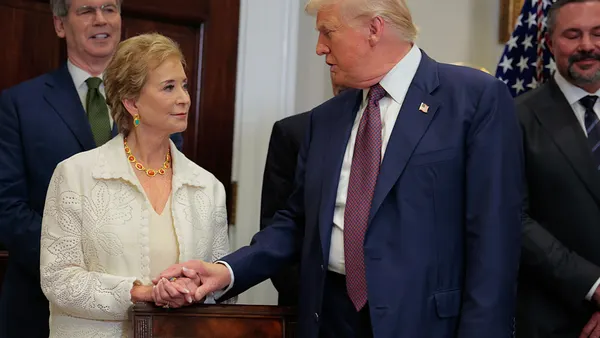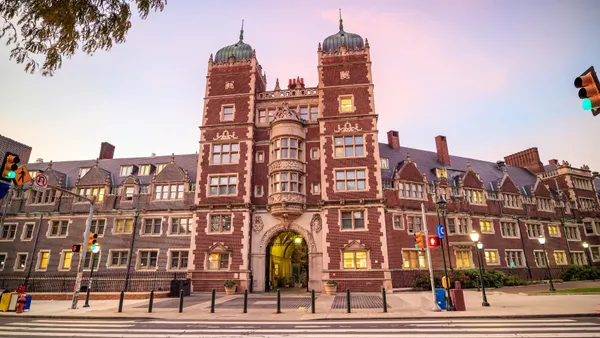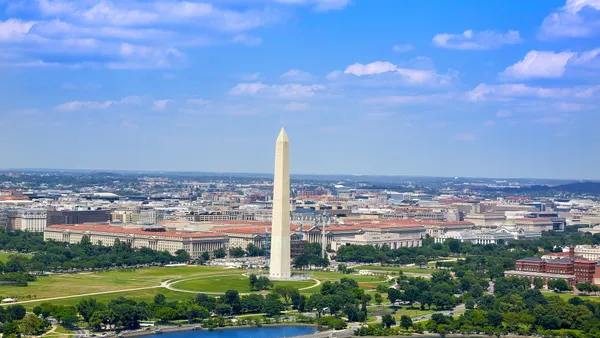Dive Brief:
- University of Nebraska System leaders aim to raise tuition and cut millions of dollars from the institution’s budget after state allocations fell well short of inflation and their request.
- Its fiscal 2026 budget proposal calls for $20 million in spending cuts to the four-campus system’s core budget and a 5% average tuition increase. The state’s board of regents plans to vote on the budget at a meeting next Thursday.
- The reduced spending comes on top of $11.8 million in permanent cuts for the current fiscal year and $30 million the year before. The system joins other major state institutions making cuts amid state and federal funding shortfalls.
Dive Insight:
University of Nebraska System President Jeffrey Gold said in a statement this week that the public institution needs to “manage every dollar with discipline, care and transparency” while maintaining affordability and educational quality.
The system is feeling the squeeze from inflation in labor and operating costs while also contending with federal and state funding challenges, according to a presentation from Anne Barnes, the university’s finance chief.
“We will need to continue to reduce spending and make increasingly difficult choices to ensure fiscal discipline as we have done for the past decade evidenced by over $100 million in cuts and internal efficiencies,” Barnes said in the presentation.
Fiscal challenges for the university include an increase in state funding of just over 0.6% — well short of the university’s requested appropriations based on a 3.5% inflation rate. However, the 0.6% uptick is still better than the 2% cut recommended by Nebraska Gov. Jim Pillen recommended earlier this year.
The Trump administration’s policies are also weighing on the university’s budget, including interruptions and cuts to federal grants and contracts, as well as moves to limit reimbursement for research overhead costs, the university said.
The National Institutes of Health’s 15% cap on overhead funding — blocked permanently by a federal court in April but appealed by the Trump administration — would mean the University of Nebraska would need to cover an additional $27 million to sustain its research, Gold said earlier this year.
The university's flagship Lincoln campus has coped with budget pressures by freezing hiring, a move that follows staff cuts in recent years.
Looking at the fiscal year ahead, the university plans to shrink spending on staff salaries by 4.2%, while it expects faculty salaries to grow 3.2% based on collective bargaining agreements and tenure promotions.
With the proposed tuition increases, the University of Nebraska anticipates overall tuition revenue will increase 4.6%, though it expects nonresident and international student revenue to fall 3.1%.
The proposal calls for increasing in-state undergraduate tuition at the UNL from $277 to $291 per credit hour and out-of-state tuition from $888 to $932.
The university said that even with the tuition hike, Nebraska “would remain one of the most affordable institutions of higher education among its peers” in the Big Ten Conference.


